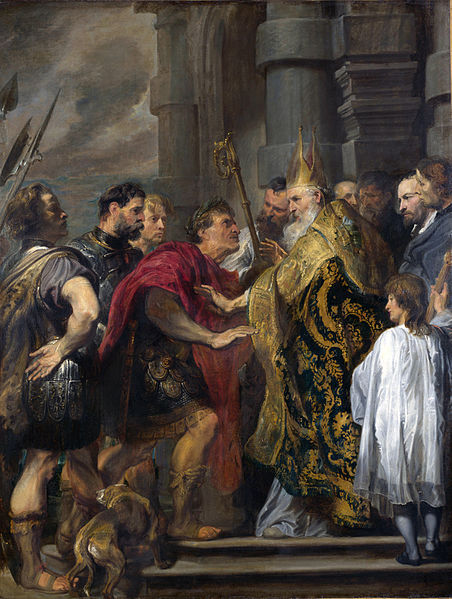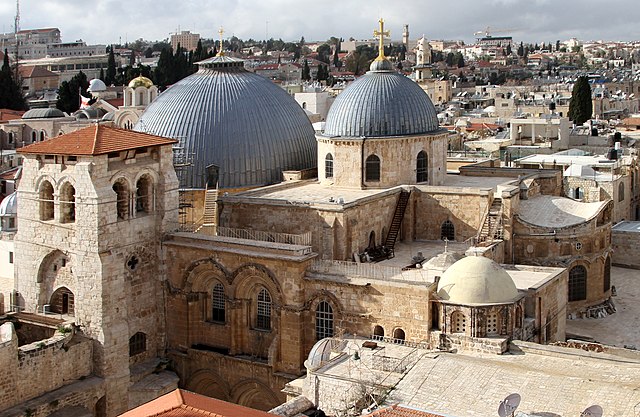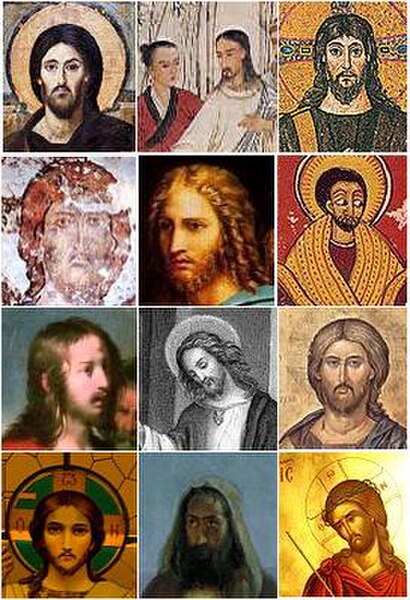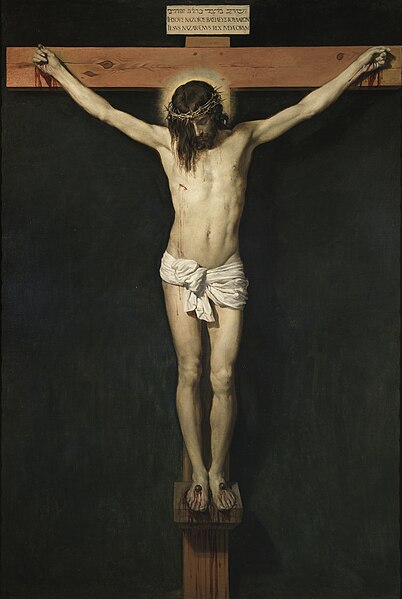Role of Christianity in civilization
Christianity has been intricately intertwined with the history and formation of Western society. Throughout its long history, the Church has been a major source of social services like schooling and medical care; an inspiration for art, culture and philosophy; and an influential player in politics and religion. In various ways it has sought to affect Western attitudes towards vice and virtue in diverse fields. Festivals like Easter and Christmas are marked as public holidays; the Gregorian Calendar has been adopted internationally as the civil calendar; and the calendar itself is measured from an estimation of the date of Jesus's birth.
Disputation of the Holy Sacrament by Italian Renaissance artist Raphael, 1509–1510
Icon depicting the Roman Emperor Constantine (centre) and the bishops of the First Council of Nicaea (325) holding the Niceno–Constantinopolitan Creed of 381.
Saint Ambrose and Emperor Theodosius, Anthony van Dyck.
Pope Gregory the Great (c 540–604) who established medieval themes in the Church, in a painting by Carlo Saraceni, c. 1610, Rome.
Christianity is an Abrahamic monotheistic religion based on the life and teachings of Jesus Christ. It is the world's largest and most widespread religion with roughly 2.4 billion followers, comprising around 31.2% of the world population. Its adherents, known as Christians, are estimated to make up a majority of the population in 157 countries and territories. Christians believe that Jesus Christ is the Son of God, whose coming as the Messiah was prophesied in the Hebrew Bible and chronicled in the New Testament.
The Church of the Holy Sepulchre in the Christian Quarter of the Old City of Jerusalem, the holiest Christian site
An Eastern Christian icon depicting Emperor Constantine and the Fathers of the First Council of Nicaea (325) as holding the Niceno–Constantinopolitan Creed of 381
Various depictions of Jesus
Crucifixion, representing the death of Jesus on the Cross, painting by Diego Velázquez, c. 1632






